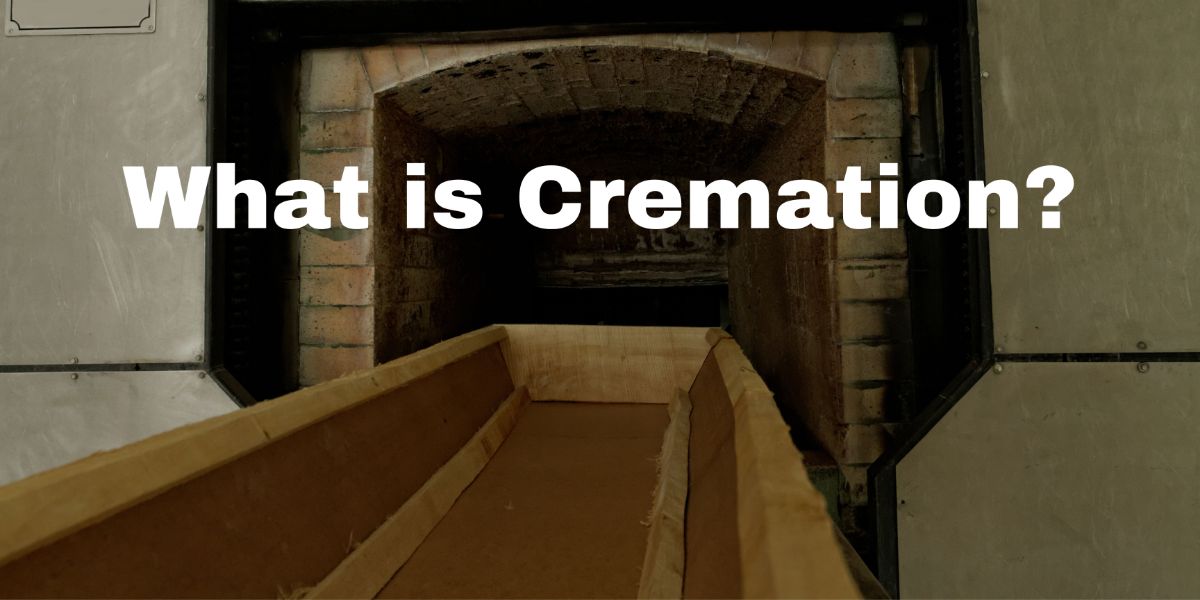
Updated on 09/22/2022
Circle of Love Dolphin Lucite Art Cremation Urn, In The Light Urns
What is Cremation?
Cremation is the process of burning a dead body into ashes. Death is normally a difficult topic we all avoid discussing, because it is uncomfortable and painful.
“Everybody will die, but very few people want to be reminded of that fact.” • Lemony Snicket
Preparing for the inevitable is smart and helpful to the loved ones left behind. When someone important to us dies, we want to remember them in a way that honors the life they lived. While many feel burial is the traditional method after a death, cremation is turning into the more popular method for many Americans.
Is Cremation a Good Option?
Cremation offers flexibility and a growing sense of personalization that people appreciate. Making arrangements for death ahead of time is a good way to ease the burden of death on a loved one. People can set up services, funeral memorials, cremation ceremonies and more to ensure they leave in the way that makes the most sense to them. Otherwise, these decisions will be made by those closest to them in relation.
The History of Cremation in the US
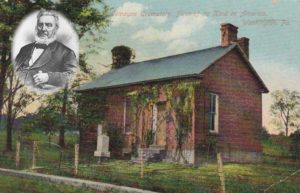
LeMoyne Crematory, Established the Year of 1876 in Washington, Pennsylvania
Cremation has been a practice for a long time, with some scholars believing it to have started in prehistoric times with evidence as early as 7000 B.C.
Cremation became popular in the US just over 100 years ago when a dependable chamber was created in Washington, Pennsylvania by Francis Julius LeMoyne. The first cremation performed at the LeMoyne Crematory was on December 6, 1876.
By 1913 (37 years later), 52 crematories existed in North America. In 2009, 34% of deaths were handled through cremation. In 2016, over half of Americans (50.2%) were cremated, according to the National Funeral Directors Association. This change in practice has occurred with a shifting view on cremation as well as a concern for the environment.
People want to spend less, remember more and take up less space when they leave.
What are some reasons people choose cremation over burial?
-
Lower costs
-
Space saving
-
Religious beliefs
-
Environmental Concerns
-
Personal Reasons
-
Flexibility in the Memorialization
-
Remains that can be Moved
-
Desire to Scatter, Bury, Display or Entomb Ashes
-
Delayed Memorial Service After the Death
When Does Cremation Occur After Death?
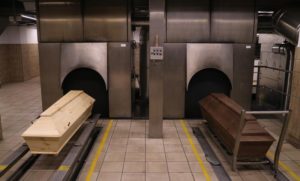
Cremation Ovens By Georg Lippitsch
When the body is first brought to the crematory, a special identification tag is placed on the body that remains with them throughout the process. It is returned along with the ashes to the family to ensure there are no confusions. Laws require only one cremation is done at a time.
Most states have a requirement for a minimum number of hours before the body can be cremated, which may be 24-48 hours. The death certificate must be signed and no questions about the death can remain with state agencies before cremation can occur.
Crematories are dedicated to getting your family the remains as soon as possible, but cremation is final. A crematory wants to make sure the decision to cremate is made in full awareness of the process and all it entails. Once the body is turned into ash, there is no going back.
How Long Does the Entire Cremation Process Take?
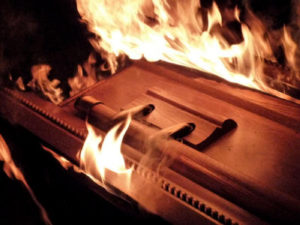
Temperatures range over 1600 Degrees Fahrenheit during the Cremation Process.
When all is said and done, most cremations are complete by the end of the day, or within a few hours. The body typically only takes a couple of hours for the actual cremation part, but other things impact the length of the process.
When the crematory gets the body, it has to prepare for cremation. All implants, mechanical devices, prothesis, pacemakers or radioactive devices must be removed from the body. Items like these could damage the crematory or personnel if they were not removed before the cremation process.
Temperatures over 1600 degrees Fahrenheit turn the body into primarily ash. The small bone fragments that may remain are then ground down into small particles and returned to the rest of the remains. Human ashes tend to be more grainy like sand than lights and fluffy like campfire ashes.
As the remains are turned into particles, any metal from fillings or jewelry are removed. These are often given to medical recycling places since they are metals. These metals do not burn during the cremation.
How Long Until You can Claim the Ashes from the Crematory?
Though the cremation process doesn’t take more than a few hours, the remains are not usually ready for several hours. Many crematories won’t have the remains ready for a few days. The remains must be completely ready for the family and the crematory must have a free time to give them the family with the dignity they deserve. In some cases, loved ones have left cremation ashes uncollected at funeral homes for years.
While many choose to purchase an urn, it is not necessary for collecting the body. A beautiful urn can help memorialize the loved one. Urns are very popular for those who are choosing to keep all or some of the ashes. A temporary container is typically provided by the memorial company if you choose not to get an urn.

Scattering Ceremony at Sea
Many people view cremation as a way to set the body free after death. While some hold on to the remains in a special urn, others choose to scatter them.
Check out our blog on different ideas for scattering ashes or an at home memorial.
Cremation gives the kind of flexibility that burial does not. Not only can the ashes themselves be placed where they are admired, but the memorial service can be held whenever it best works for the family or remaining loved ones.
While burial takes up a large plot in a cemetery with a box that doesn’t decompose, cremation helps return the body into a more naturally deconstructed state. Cremation is often seen as a personal choice because it is not rooted in tradition.
If you are thinking about choosing cremation for yourself or a loved one, please contact us today. We would be more than honored to help you work through the process of grief and remembrance with cremation.


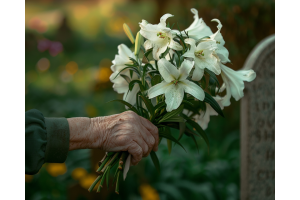
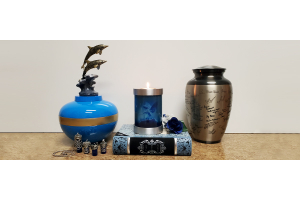
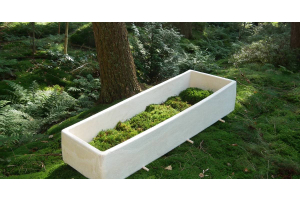
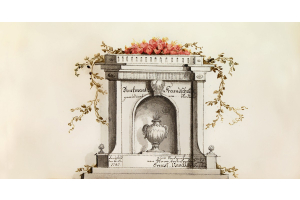

and pre-funded for my own direct cremation to avoid any doubt or confusion. Good
article. Thank you.